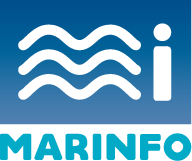What are unmanned vessels and unmanned maritime vehicles (UMVs)?
There is no legal definition of what unmanned vessels and UMVs are. Neither the international law namely, the 1982 United Nations Convention on the Law of the Sea (UNCLOS), nor the Portuguese legal framework, define what unmanned vessels and UMVs are. There is a legal gap regarding both the definition and the rules directly applicable to the use of unmanned vessels and UMVs in the different maritime zones.
* For the purpose of MARINFO project, unmanned vessels refer to ships to be used in maritime transportation, with the main feature of having no human presence on board.
UMVs refers to an untethered, self-propelled and self-powered vehicle with the capacity of movement without a human presence on board. UMVs can integrate different types of vehicles: (i) unmanned surface vehicles, (ii) unmanned underwater vehicles and (iii) amphibious vehicles.
